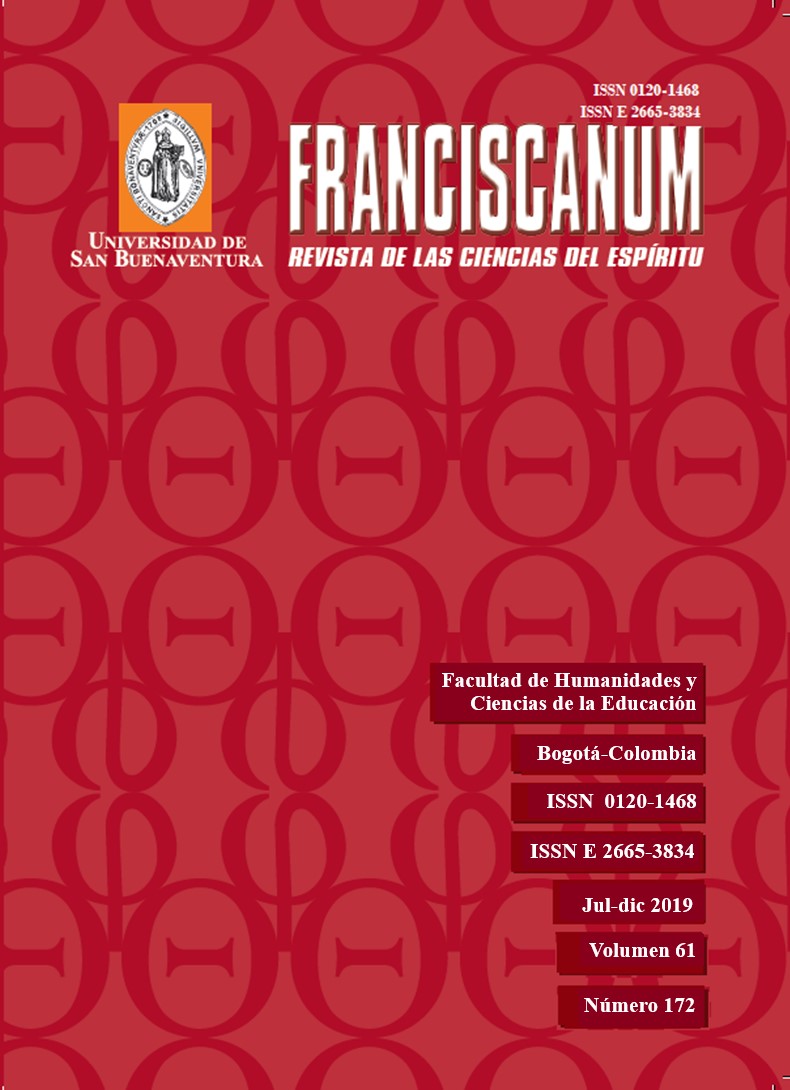This journal provides immediate open access to its content, based on the principle that giving the public free access to research helps a greater global exchange of knowledge.
Therefore, the Creative Commons 4.0 Attribution Attribution - Equal Share (by-sa) License is accepted: The commercial use of the work and the possible derived works is permitted, the distribution of which must be done with a license equal to that regulates the original work.
http://creativecommons.org/licenses/by-sa/4.0/
Along these same lines and in line with the Open Access policy, it is clarified that the authors maintain their rights to articles, without restrictions and, in the same way, they maintain their publication rights, without restrictions. They are only asked to reference the number of the Franciscanum magazine where the article initially appeared.
Abstract
After the excesses and contradictions that led to the different humanisms that characterized modernity, both illustrated and delayed, contemporary thought has fallen into a pessimism, to some extent justified, regarding the emancipating and humanizing potentialities of rationality autonomous and critical that characterized that era. Current pessimism denies the human being as a value and as an ideal, also with a certain reason, opening the way to an antihumanist and post-human era. From the point of view of the Christian tradition it is intended to recover humanism; it can’t be said to be a new humanism but an originary one. What we understand here for Christian humanism is the result of the confluence between those two traditions that make up the face of the West, (Israel and Athens). This must be a self-critical, measured and self-limited humanism, which under the concept of creaturality –and the contingency that derives from it– aims to revalue man in the more general framework of his finitude and his necessary conformity with natural law; in this way they seek to recover both roots and pillars that have defined Western culture.




















